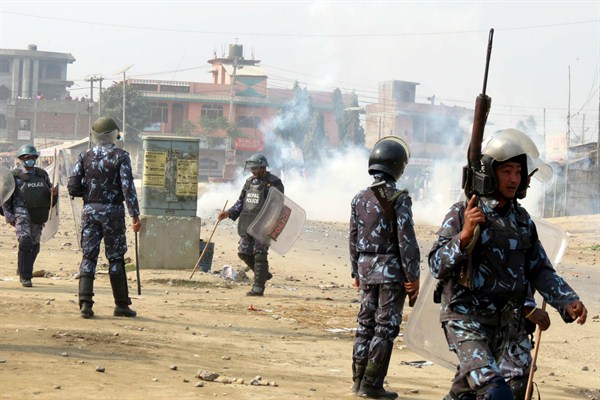Nepal stands on the brink of an economic crisis, after what it alleges is an India-imposed blockade of its borders for the past three months. Pushing back, Nepali leaders are vowing to work toward economic self-reliance and ease their dependence on India, to the advantage of New Delhi’s rival, China.
“Nepal-India relations are at their lowest ebb right now,” says Yubaraj Ghimire, a Kathmandu-based commentator. The blockade of this landlocked nation began on Sept. 23, three days after Nepal officially adopted its new constitution. Critics argue the charter does not give fair political representation to two ethnic groups, the Indian-origin Madhesi and the indigenous Tharu people.
But in a long-overdue sign of progress, Nepal’s government agreed Monday on a bill to amend the new constitution that, if approved by parliament, would address two key Madhesi demands regarding proportional representation in government and how constituencies are drawn up. India welcomed the proposals, though it isn’t clear if they will be enough to end the blockade. Madhesi leaders have called the amendments insufficient, but talks are ongoing.

